Kingsport businesses and residents stand to save on insurance costs with increased Kingsport ISO fire rating
KINGSPORT –Kingsport has just become the only Insurance Services Office city rated as Class 2 for fire protection in Northeast Tennessee, moving up from the previous classification of 3/9.
ISO is a leading source of property/casualty insurance risk data. Class 1 is the highest level of fire protection a local government can provide, with 10 indicating little or no fire protection at all.
The class 2 designation will be in effect until the next ISO review in five years and applies only to directly served residents inside the corporate boundaries of the City.
According to Kingsport Fire Department, there are 30,145 fire departments in the USA and 725 fire departments in Tennessee. Only 750 departments nation-wide are rated as Class 2.
“The investments made by the Board of Mayor and Aldermen over the last several years have gone a long way to help improve our ISO Rating from a 3 to a 2,” Fire Chief Craig Dye said Tuesday. “The new rating shows that having a highly trained and well equipped fire department as well as sound infrastructure pays off for our residents, in terms of greater safety, and by saving our citizens and businesses money.”
City Manager Jeff Fleming noted that earning the new ISO rating was an effort that went beyond front-line Fire protection personnel, as the entire system is reviewed, including Central Dispatch, GIS (Geographic Information Services), the Water Department, as well as all those within the Fire Department who provide training, instruction, community inspections.
“I have spoken repeatedly about the tremendous depth of talent we now have on board in City government,” Fleming said. “This is just one example how this high talent level will continue to provide payback for the citizens of our City in the years ahead.”
In particular, both Fleming and Dye said the ISO 2 rating is a result of employee efforts by folks such as Jerry Mowl and Nancy Fender in Central Dispatch, Jake White in GIS, Chad Austin and Chris Alley in the Water Department, as well as Chris Lowe, Max Bear, Todd Greene and Joel Jones in the Fire Department.
While 99 percent of the City is rate as Class 2, the remainder is rated at 2Y, a designation denoting a property that is more than 1,000 foot from a hydrant or more than five miles from a fire station.
ISO ratings are based on a community’s fire-suppression system, communications, fire halls, equipment, and water supply.
Other cities in Tennessee which have earned a Class 2 designation include Chattanooga, Franklin, Murfreesboro, and Memphis. Johnson City and Bristol currently have a Class 3 designation.
It is difficult to quantify the annual insurance savings for business and residences, with each insurer using differing methodologies and criteria. Still, Fleming said each citizen should speak with their insurer to ensure they are being charged based on the new ISO classification. Based on previous studies, the savings could be as much as $300 a year.
“This is a big win for our community, and certainly, we encourage our business owners and homeowners to look into the potential insurance savings from this new rating classification,” Fleming said.



